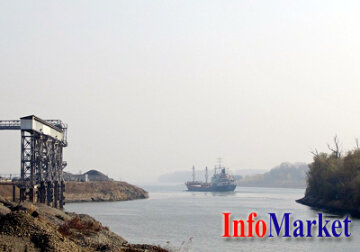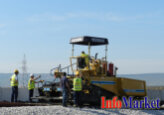
Moldova will accede to the Convention on Facilitation of International Maritime Traffic and the Giurgiulesti port will serve more ships.
Deputy Prime Minister, Minister of Infrastructure and Regional Development Andrei Spinu said this, noting that, in particular, this is provided for by the draft law on accession to the Convention, adopted in London on April 9, 1965, which was approved by the government. According to him, the implementation of the Convention will help to prevent unnecessary delays in maritime traffic. In particular, traffic in the port will be facilitated; formalities at the entrance/exit of ships will be reduced; data exchange between the states on the movement of ships, cargoes and passengers will be improved. An electronic single center will be created in the port, where ship owners/operators and ship agents will be able to fulfill reporting obligations in electronic format, applicable to ships arriving and departing from the port, to the electronic information system applicable to all relevant controlling authorities. In addition, the authorities’ control time will be reduced and the costs to the authorities and ship owners will be reduced. According to the Ministry of Infrastructure and Regional Development, as a result of Moldova's accession to the Convention on the Facilitation of International Maritime Traffic, ship downtime in the port will be reduced, resulting in lower costs. Thus, the port in Giurgiulesti will be able to serve a much larger number of ships and increase revenues. Once Moldova accedes to the convention, it will standardize procedures, formalities and documentation requirements to facilitate and improve international maritime transport. It will equally benefit administrative procedures for the entry, mooring and departure of ships, as well as the implementation of the principles of border control. It will remove bureaucratic barriers for the business environment, reduce procedural time for applications, digitize and speed up the exchange of information between states. The Convention on the Facilitation of International Maritime Traffic was adopted in London in April 1965 and establishes a set of standard forms to be submitted by ships when entering or leaving the port of a party to the Convention. // 19.01.2023 - InfoMarket.







